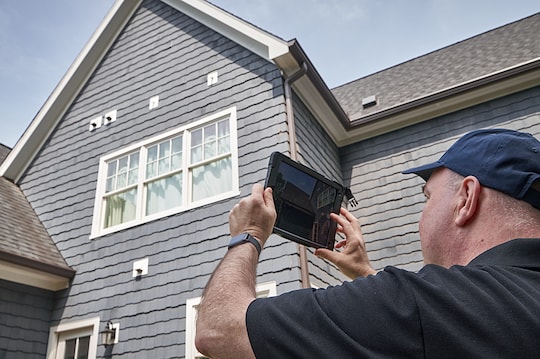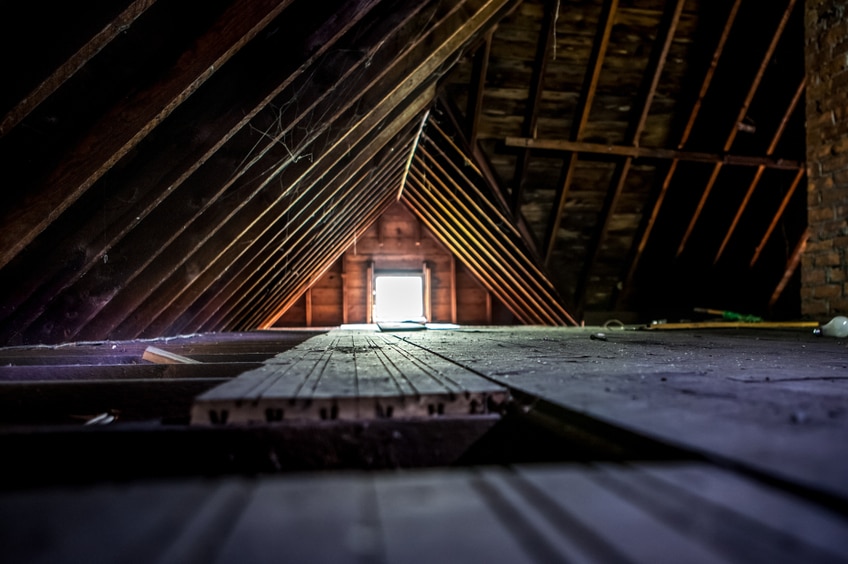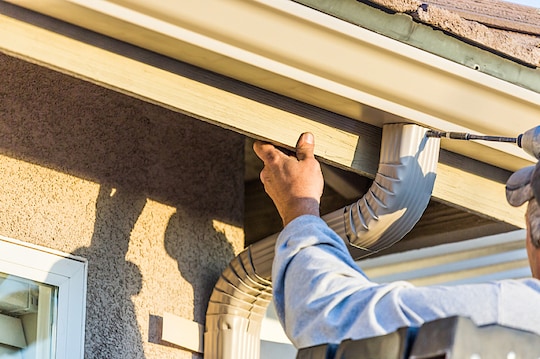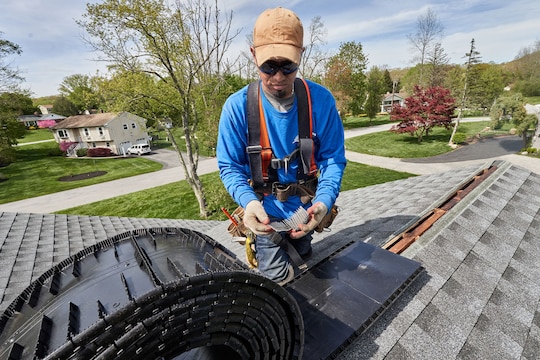
Just in case you needed telling, you should definitely take note if you detect a strong attic smell in your home! Firstly, in many cases, the unpleasant smells might begin infiltrating other areas of your residence. Secondly, and potentially much more serious, pervasive bad odors can be warning signs of other deeper issues. Whatever the cause (and there are many possibilities), when you detect a foul odor, it may be time to take a serious look at improving your attic ventilation. Below we'll take a look at some of the common causes of bad attic odors — and how having efficient, well-maintained attic ventilation can help prevent them.
1. Mold and Mildew Growth
Along with a basement, an attic is one of the most common places for mold and mildew to grow. Improperly installed insulation and a lack of a properly balanced attic ventilation system can lead to the growth of these fungi, which create a musty smell. This is where ventilation comes in: when intake vents are improperly covered with insulation, hot and moist air can be prevented from leaving the attic through the ridge or other exhaust vents— creating the perfect environment for mold and mildew to thrive. While insulation is essential in keeping your home warm during cold months, if it's improperly installed it will block the vents and hinder airflow.
Your attic might also not have sufficient ventilation capacity for the air it needs to enter and leave. This will lead to stale air, a major cause of condensation and, eventually, mold. Adding soffit vents like GAF Master Flow® Intake Vents is one of the easiest ways to solve this problem. You can also add GAF Cobra® or Master Flow® roof vents at the roof peak, since that's where the hot and moist attic air escapes the space.
2. Wet Insulation
Mold isn't the only thing that can cause your attic to smell. Attic insulation can get damp when there is excessive air moisture, causing condensation to drip from different areas. Apart from leading to an unpleasant smell, wet insulation will likely not function correctly and possibly require replacement. In addition to the cost of this, consider the added expense of your energy bills caused by reduced energy efficiency in your home.
If insulation has been wet for a long time, it is likely that an extensive replacement will be required. To avoid recurrence of the issue — prevention being better than the cure — it's advisable to make sure you have sufficient ventilation going forward.
3. Smelly Animals
Unfortunately, it's frequently the case that certain enterprising animals will gain access to your home through openings near the basement or roof and eventually reach the attic. Gaps in your window frames or near ducts are also favorite points where such pesky critters can enter. Their urine and feces can (as you'd imagine) create a particularly foul attic smell.
Also (and not at all nice to think about), some of these animals may die inside your house. Dead animals like mice and rats decompose fast, which creates an extremely unpleasant, sulfur-like scent. If you detect a strong odor coming from the attic similar to that description, it's crucial to find the source quickly as it can attract other unwanted pests and insects. Keep in mind that the animal may not be in the attic exactly, but inside an air duct that vents near it.
Why Attic Ventilation Is Important
It's undeniable that proper attic ventilation is essential to keeping your attic and entire home smelling good: continuous airflow prevents mold growth and helps prevent your insulation from getting wet.
However, it does more for your home than just keeping foul smells at bay. It also impacts your wallet: proper attic ventilation may help reduce energy costs and even protect your roof. And, by helping warm air flow out of the house and cool air flow in, the roof temperature is kept at stable levels, reducing the likelihood the shingles and decking will crack or buckle. In colder environments, attic ventilation is also essential for preventing ice dams from occurring.
If you think your home is in need of better ventilation, it's best to hire a certified professional* to help ensure your home has the proper amount of airflow. They can help determine how many additional attic and roof vents your home needs and make sure they're installed for maximum effectiveness, and hopefully no bad attic smells in your future!
*Contractors enrolled in GAF certification programs are not employees or agents of GAF, and GAF does not control or otherwise supervise these independent businesses. Contractors may receive benefits, such as loyalty rewards points and discounts on marketing tools from GAF for participating in the program and offering GAF enhanced warranties, which require the use of a minimum amount of GAF products.





